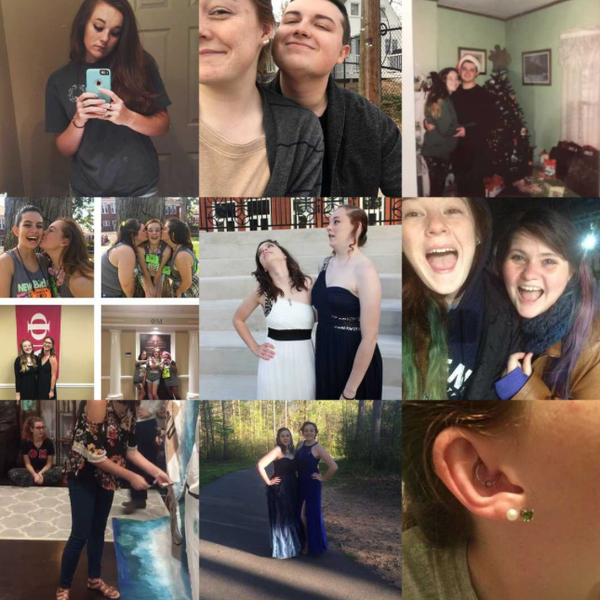Autism is one of the least understood disorders known to man. According to the CDC, about one in 88 American boys is diagnosed with autism. Having autism has developed negative connotations, especially here in the United States. As an autistic 16-year-old boy, I would like to reveal many of the erroneous archetypes associated with life on the autism spectrum. Perhaps the only thing the media gets right in their portrayal of us is the extremes of our capacities, however exaggerated they may be.
1. We are geniuses with a monstrous intellectual appetite
Before movie fans start coming after me, let me say, first of all, that Will Hunting wasn't officially autistic. He just makes a nice photo to illustrate my first point--that we are nothing like him, but that success stories like those of Temple Grandin and Daniel Tammet tend to influence the popular opinion that we are. I have nothing against them--they are wonderful individuals who contribute much to society. As with every stereotype, there is an element of truth that allows it to proliferate; for instance, I have absolute pitch (meaning that if you sing or play a musical note, I will tell you whether it is a B-flat, or C, or anything else), I can solve quadratics in my head, and I can say the capital of virtually any country asked of me; on top of all that, I can carry a conversation to varying degrees in French, Spanish and Italian. But I'm not perfect. None of us are. I've made F's on assignments before. Math is actually one of my weaker subjects in school. Reviews of the scientific literature on autism show that there is no correlation between autism and IQ. Yet this stereotype is arguably the most common one that has arisen within the past twenty years. Vying for that title is its antithesis...
2. We have the IQs of children
Sentimental stories like Forrest Gump spearhead the reasoning behind this point. Again, it is not without truth: I went to several special-needs schools in which I was surrounded by little Forrest Gumps. For a time, I seemed to be one of them, until I learned that I simply did not know how to communicate. Learning to talk through what made me feel happy, sad, angry, strange--soon I was able to articulate my intellect in ways I hadn't before. Reading aloud, speaking coherently--these tasks were difficult for them, but, by the end of my tenure at those schools, I, for reasons that I still am not completely sure of, excelled and achieved something of celebrity status. Now, there are those who, without the appropriate education and therapies (Floortime/DIR, hippotherapy (horseback riding), service dogs, medications, etc.) are not as successful. Some may never learn to speak. But nevertheless, there are about as many "smart" people with autism as there are "dumb" people. That's just the nature of it. Anyone can have it, and the effects are different for everyone.
3. We are completely socially inept
Yes, I know that I and a number of my friends do not have the highest EQs (emotional/interpersonal intelligence), but that is totally different than not being able to relate. Granted, I do see a counselor regularly, but I actually can carry conversations and even make people laugh. And a few of my autistic friends can do that, as well. We are good at creating and sustaining differing degrees of friendship, and hanging out on social media is only slightly more difficult because it takes the speaking part out of conversations and relationships, so some of the things we send may be read the wrong way, but we are very good at apologizing and making up. Remember--just because someone is smart doesn't mean they are a "nerd." There are plenty of socially inept people who have no nerdy interests, and there are plenty of intelligent people who do not instantly come off as nerds.
4. We cannot provide for ourselves
It is commonly assumed that, once people of the autistic ilk move on in life, they have a hard time learning the skills they need to survive the workplace, relationships and living on their own. This is, again, not without foundation; at one of my old schools, one of the teachers asked the class to have our parents evaluate our life skills. These skills were rudimentary things I have known for a long time, such as reciting my name and address and tying my shoes; the only new skill I learned (and did well at, for the first time) was frying an egg without breaking the yolk. I knew when I had done well that I was the counterexample necessary to break the stereotype. In fact, I am confidently looking forward to living anywhere but my parents' basement when I finally leave college (yes, I do plan on going to college).
5. We cannot hold down stable jobs or relationships
Another reason providing for ourselves is "hard" is because we have a hard time leading a normal life. Some of us are too reactive and volatile, others are absent-minded or ambivalent and still others are simply not interested in a conventional professional or personal life. That is nothing. I know plenty of non-autistic people who are perfectly happy not entering a relationship, having a job with a paycheck or even living away from home. There are enough non-autistic people out there that have much the same personality types, work ethics and approaches to life as autistic people that make this stereotype really egregious.
6. We are violently impulsive
This may be the truest stereotype on this list--I, for one, have always had problems with impulsivity and still tend to act on intuition, and I know younger autistic people are as well. I will sometimes yell when I get angry, I become extremely competitive, I used to get into physical fights with adults--but the violent part is latent in me (and many of my friends now). Generally, with the therapies and interventions mentioned above, we can achieve less reactivity and may be only impulsive now in the way the non-autistic individuals would be--that is, we act way too much on our gut instead of thinking decisions through. My autistic friends and I only fight defensively, never offensively. I actually consider myself to be quite the gentle giant these days.
7. We are emotionally unstable
This, again, vies with the last point for the trust. Many of my friends who are autistic interact with non-autistic people or people whose degrees of autism differ vastly from theirs, as was the case at one of my old schools. Many of the students there were, in fact, emotionally unstable. One was a pathological liar, and becoming her friend ended up a mistake to say the least (though we are friends again now). Another had a bad enough experience trying and failing to relate to others that she took her own life. As for me, the failed friendships made at that school were an experience I had never had. I was traumatized, fearful of everyone I met at my new school and venegeful. Even I was not above emotional instability. Nevertheless, my enemies and I made up in the end and we are now good friends. Although I've overcome it, I will never forget it and have been shaped for the better because of it. I know some people with autism who are emotionally sound. Everyone, as I said before, is different, and that is why autism is not like other "behavioral disorders." The sheer diversity of cases alone is enough to destroy all stereotypes.




























